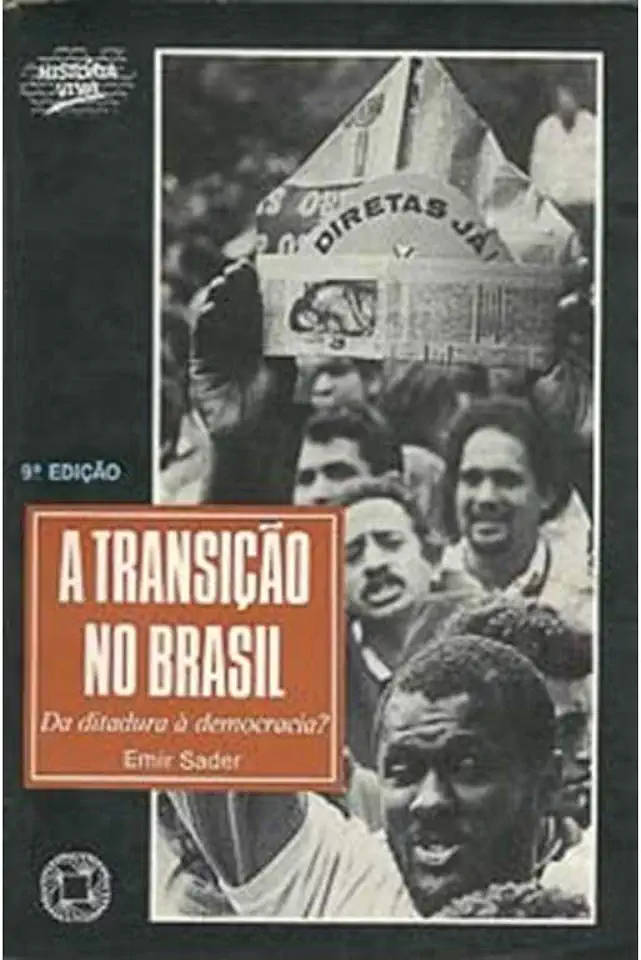
The Transition in Brazil - From Dictatorship to Democracy? - Emir Sader
The Transition in Brazil: From Dictatorship to Democracy?
Introduction
In his book "The Transition in Brazil: From Dictatorship to Democracy?", Emir Sader offers a comprehensive and insightful analysis of the complex political and social transformations that Brazil underwent during its transition from military dictatorship to democracy. Sader argues that Brazil's transition was not a simple shift from one political system to another, but rather a protracted and multifaceted process that involved profound changes in the country's economic, social, and cultural spheres.
The Military Dictatorship
Sader begins by providing a detailed account of the military dictatorship that ruled Brazil from 1964 to 1985. He describes the repressive measures employed by the military regime, including the widespread use of torture, arbitrary arrests, and censorship. Sader also analyzes the economic policies implemented by the dictatorship, which resulted in rapid economic growth but also increased inequality and social unrest.
The Struggle for Democracy
Sader then examines the various social movements and political forces that emerged during the dictatorship and played a crucial role in the struggle for democracy. He highlights the importance of the labor movement, the student movement, and the Catholic Church in mobilizing popular support for democratic change. Sader also discusses the role of international pressure in促使巴西走向民主.
The Transition to Democracy
The central focus of Sader's book is the transition from dictatorship to democracy in Brazil. He argues that the transition was not a linear process, but rather a series of fits and starts, marked by both progress and setbacks. Sader identifies several key factors that contributed to the success of the transition, including the unity of the opposition forces, the support of the international community, and the willingness of the military to relinquish power.
Challenges of Democracy
Sader concludes his book by discussing the challenges that Brazil faced in its transition to democracy. He identifies several areas where progress was lacking, such as the persistence of social inequality, the weakness of democratic institutions, and the continued influence of the military in politics. Sader argues that Brazil's democracy is still a work in progress and that it will require continued vigilance and effort to consolidate democratic gains and address the remaining challenges.
Conclusion
"The Transition in Brazil: From Dictatorship to Democracy?" is a valuable resource for anyone interested in understanding the complex political and social transformations that Brazil underwent during its transition from military dictatorship to democracy. Sader's analysis is both insightful and comprehensive, and he provides a nuanced understanding of the challenges and opportunities that Brazil faced during this critical period in its history.
Enjoyed the summary? Discover all the details and take your reading to the next level — [click here to view the book on Amazon!]